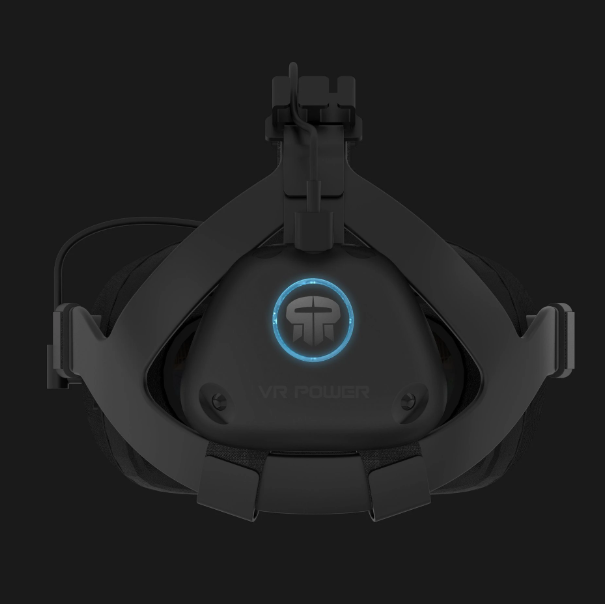Facebook Reportedly Building a Smaller and Lighter Quest Version with Over 90Hz Refresh Rate
A Bloomberg report states that Facebook is building a new smaller and lighter version of its Oculus Quest headset that will have a higher refresh rate. Bloomberg has given credible reports in the past on Oculus developments so there is a likelihood that it has a solid source from within the Facebook’s Virtual Reality division.
According to the new Bloomberg report, the headset was originally slated for launch late this year but will now be launching next year due to the delays which have been occasioned by the pandemic. It is still unclear whether the new Oculus Quest headset is the same ‘Del Mar’ headset that had been leaked in March this year.
The headset will reportedly be smaller, lighter and also more comfortable. At the moment, one of the most common complaints regarding the current Oculus Quest headset is that it is front-heavy which results in discomfort. This has resulted in the developments in lots of Oculus Quest accessories such as the battery packs that can be attached at the back of the head to provide extra juice and also balance the front-heaviness. The front-heavy design is unavoidable due to the front-heavy design of the Oculus Quest headset as it has both the battery and the computing hardware built in.

The current Oculus Quest virtual reality headset weights 571 grams (1.25lbs). According to the Bloomberg report, the new Quest headset will be 20% lighter and will weigh about 450 grams (1 lbs). Physically, it will also be 15% smaller than the current headset.
During the Oculus Connect 6 last year, the chief Facebook researcher showcased new lenses that attained a 20% wider field of view than the Quest headset in spite of that lens being physically smaller. It is probably this kind of breakthrough that has enabled Facebook to realize a reduction in weight. On the other hand, the weight reductions might simply have resulted from Facebook applying some mundane incremental improvements in both the design and the materials used in the Quest headset.
A Higher Refresh Rate
The current Oculus Quest headset has been built with OLED panels that have a refresh rate of 72Hz. This is lower than the standard 90Hz refresh rate for PC VR. The premium Valve Index headset has a refresh rate of 144Hz.
Having a higher refresh rate in virtual reality enables the users to get a more solid feel in the immersive environment with the object motion appearing more real and this helps reduce motion sickness.
The Bloomberg report states that Facebook is testing refresh rate of up to 120Hz for the new Quest headset but it is likely to cap the refresh rate at 90Hz due to battery life considerations.
The rendering of higher refresh rates would no doubt need a more powerful system-on-chip (SoC). The current Oculus headset relies on the Snapdragon 835, the flagship Qualcomm chip that was released back in 2017. As of 2020, there are now chips that have roughly twice the computing power of those original chips. However, there is no mention of the chip to be used in the new Quest headset in the Bloomberg report.
New Touch Controllers
The report also states that Facebook is working on new Touch Controllers. These might be the ‘Jedi’ controllers which are already available in the Quest firmware. According to an UploadVR analysis of the Jedi controllers, the new controllers retain the same input scheme but may result in the improvements in tracking, haptics as well as the fidelity of finger sensing.
The Bloomberg report states that the new Touch controllers will have compatibility with the current Oculus Quest headsets so it will be easier for users to upgrade. The new controllers may also fix the design flaw in the current Touch controllers where the battery cover tends to slide off in the middle of the play, according to the report.
The current Oculus Quest headset has a high-quality fabric covering that provides it with a premium feel but this is probably costlier to manufacture at scale.
The Bloomberg report states that Facebook is experimenting is contemplating getting rid of this fabric and potentially replacing it with plastic. This measure is likely out of cost considerations but it is also likely to speed up the production rate.
The report also claims that Facebook is contemplating replacing the Velcro side straps with an elastic system. This could be similar to what the Valve Index already uses though there isn’t enough detail on this just yet.
https://virtualrealitytimes.com/2020/05/05/facebook-reportedly-building-a-smaller-and-lighter-quest-version-with-over-90hz-refresh-rate/https://virtualrealitytimes.com/wp-content/uploads/2019/05/Oculus-Quest-Headset-600x337.jpghttps://virtualrealitytimes.com/wp-content/uploads/2019/05/Oculus-Quest-Headset-150x90.jpgHardwareOculus QuestTechnologyVR HeadsetsA Bloomberg report states that Facebook is building a new smaller and lighter version of its Oculus Quest headset that will have a higher refresh rate. Bloomberg has given credible reports in the past on Oculus developments so there is a likelihood that it has a solid source from...Sam OchanjiSam Ochanji[email protected]SubscriberVirtual Reality Times - Metaverse & VR
